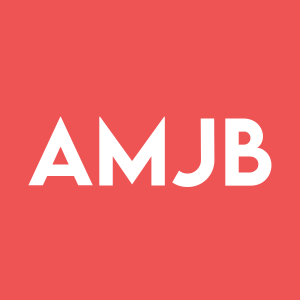AMJB: Auto Callable Contingent Interest TSM Notes from JPMorgan
JPMorgan Chase Financial Company LLC is offering auto callable contingent interest notes linked to the American depositary shares of Taiwan Semiconductor Manufacturing Company Limited (TSM), fully and unconditionally guaranteed by JPMorgan Chase & Co. The notes pay a contingent coupon of 15.00% per annum (3.75% per quarter) only if, on a Review Date, the TSM ADS closing price is at or above an Interest Barrier set at most at 69.35% of the Initial Value. Missed coupons can be paid later if the barrier is met on a future Review Date.
The notes may be automatically called on any Review Date other than the first and final if TSM’s closing price is at or above the Initial Value, returning $1,000 principal per note plus the applicable coupon and any unpaid coupons, with no further payments. If the notes are not called and the Final Value is below the Trigger Value (the same level as the Interest Barrier), investors lose 1% of principal for every 1% decline from the Initial Value and can lose their entire investment. The product is unsecured, not FDIC insured, and exposes investors to both TSM market risk and the credit risk of JPMorgan Financial and JPMorgan Chase & Co.
Positive
- None.
Negative
- None.
FAQ
What are the key features of the JPMorgan (AMJB) auto callable notes linked to TSM?
The notes are auto callable contingent interest notes due December 1, 2027, linked to the ADSs of Taiwan Semiconductor Manufacturing Company Limited. They offer a 15.00% per annum contingent coupon, paid quarterly if the TSM ADS closing price on the relevant Review Date is at or above the Interest Barrier. The notes are unsecured obligations of JPMorgan Chase Financial Company LLC and are fully and unconditionally guaranteed by JPMorgan Chase & Co.
How do the 15% contingent interest payments on the JPMorgan AMJB notes work?
For each $1,000 principal amount note, investors may receive a $37.50 Contingent Interest Payment each quarter, equivalent to 15.00% per annum. A payment is made only if, on that Review Date, the closing price of one TSM ADS is at or above the Interest Barrier (at most 69.35% of the Initial Value). If a coupon is skipped, it can be paid later if the barrier is met on a subsequent Review Date, but any unpaid coupons are forfeited if the barrier is never met again.
When can the JPMorgan auto callable notes linked to TSM be called early?
The notes can be automatically called on any Review Date other than the first and final if the TSM ADS closing price is at or above the Initial Value. The earliest possible automatic call date is May 26, 2026. Upon an automatic call, investors receive, per $1,000 note, $1,000 plus the applicable quarterly coupon and any previously unpaid coupons, and no further payments are made.
What happens at maturity for the JPMorgan AMJB notes if they are not automatically called?
If the notes are not called and the Final Value of TSM is at or above the Trigger Value (the same level as the Interest Barrier), investors receive $1,000 principal per note plus the final quarterly coupon and any unpaid coupons. If the Final Value is below the Trigger Value, the maturity payment per $1,000 note is calculated as $1,000 + ($1,000 × Stock Return), where Stock Return is (Final Value – Initial Value) / Initial Value. In that case, investors lose more than 30.65% of principal and could lose the entire amount.
What are the main risks of investing in the JPMorgan auto callable notes linked to TSM?
Key risks include principal loss if TSM’s Final Value is below the Trigger Value, the possibility of receiving no interest payments if TSM stays below the Interest Barrier, and exposure to the credit risk of JPMorgan Chase Financial Company LLC and JPMorgan Chase & Co. The notes are unsecured, unsubordinated obligations, are not bank deposits, and are not insured by the FDIC. There is also liquidity risk, because the notes are not listed on any exchange, and secondary market prices are expected to be below the original issue price.
How is the estimated value of the JPMorgan AMJB notes determined and how does it compare to the price to public?
If the notes priced on the date referenced, the estimated value would be approximately $970.00 per $1,000 principal amount note, and at pricing it will not be less than $950.00 per $1,000. This estimated value is based on a combination of a fixed-income component and embedded derivatives, using an internal funding rate and internal pricing models. It is lower than the $1,000 price to public because the public price includes selling commissions, structuring fees, projected hedging profits or losses, and hedging costs.
What market and issuer-specific factors affect the JPMorgan TSM-linked notes?
The notes depend on the performance of the TSM ADSs, which are quoted in U.S. dollars, while the underlying common shares trade in New Taiwan dollars. This creates currency exchange rate risk. Additional considerations include emerging markets risk relating to Taiwan, potential differences between ADS holder rights and common shareholder rights, and the limited, partly discretionary anti-dilution adjustments that may not cover all corporate events affecting TSM.







